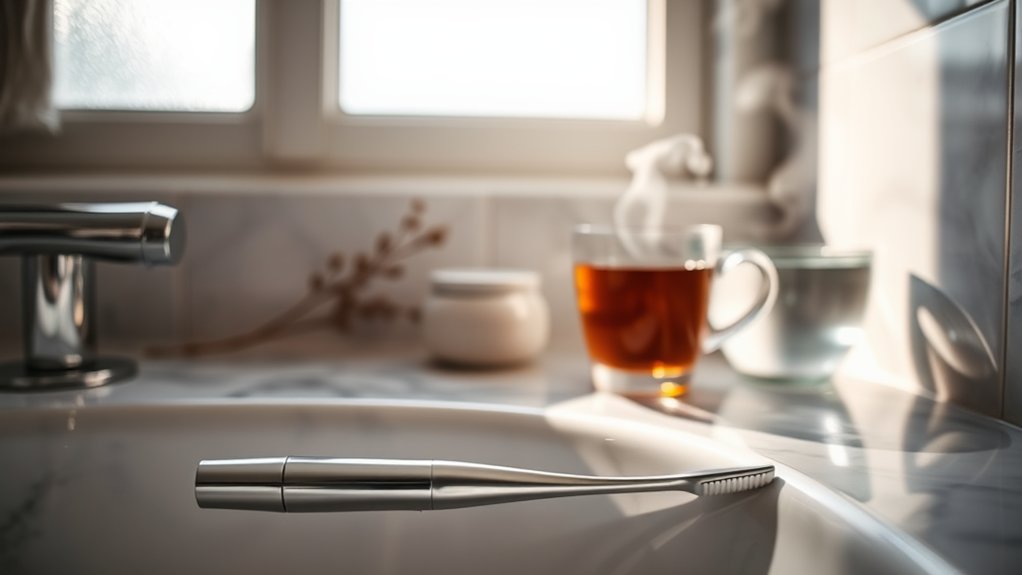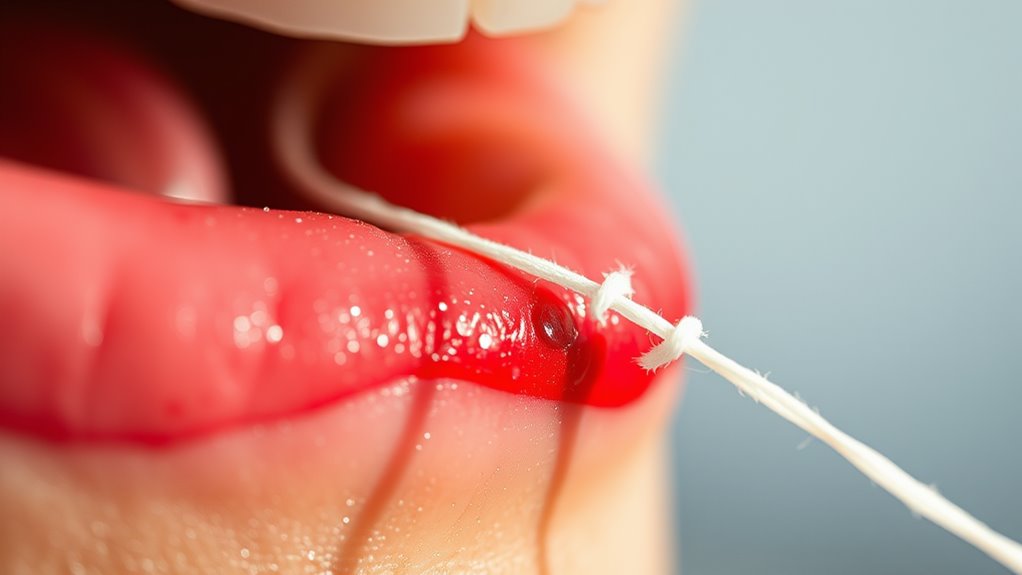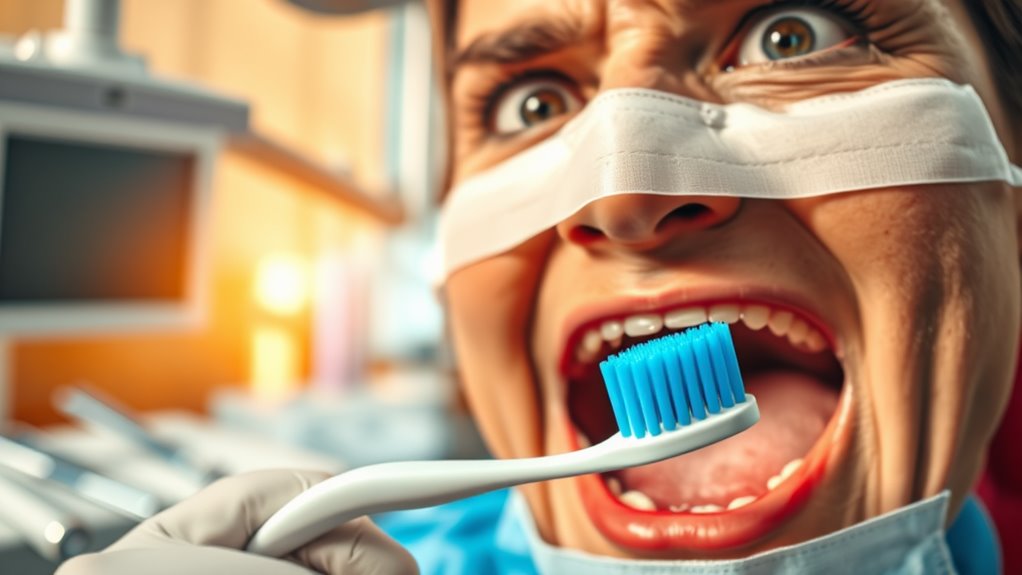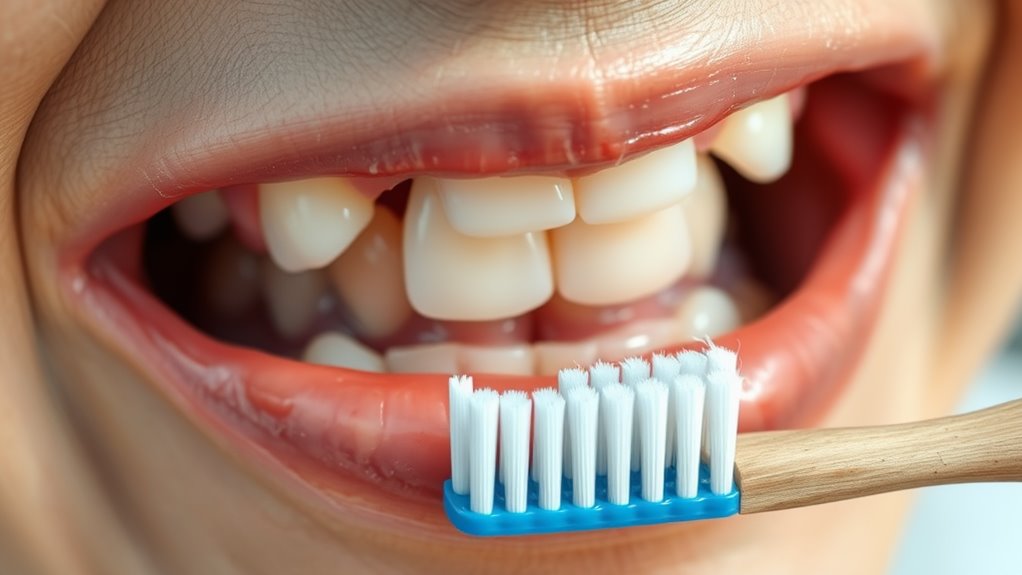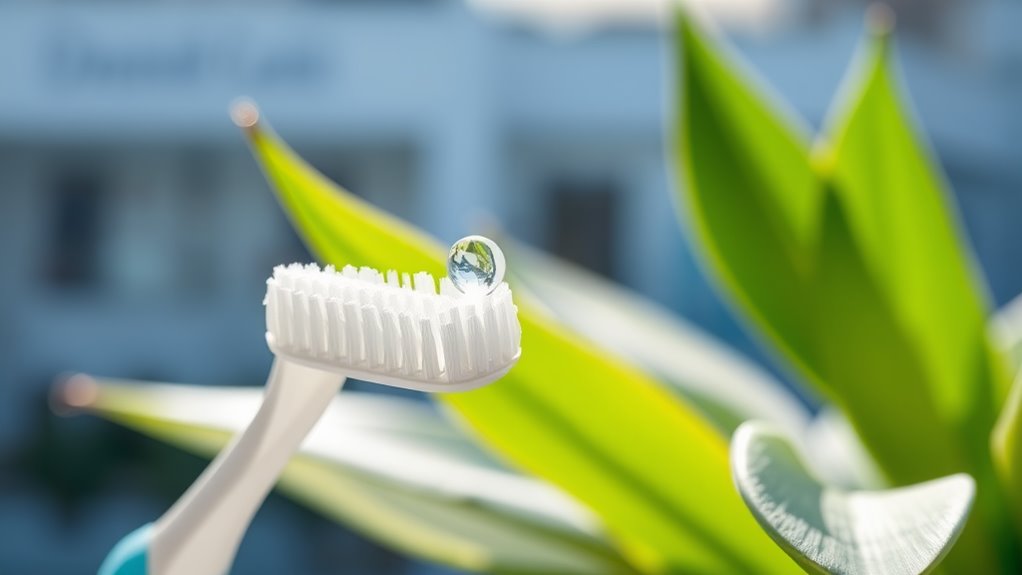Morning Breath- Why It Happens and How to Fix It
Morning breath is a common issue that many face each day. It stems from decreased saliva production during sleep, allowing bacteria to flourish. Factors like mouth breathing and leftover food particles can worsen the situation. Understanding these causes is crucial for effectively addressing the problem. So, how can you combat this unwelcome morning companion and keep your breath fresh throughout the day? Let’s explore the solutions together.
Understanding the Causes of Morning Breath
When you wake up with a less-than-fresh mouth, it’s often due to a combination of factors that contribute to morning breath. During sleep, saliva production decreases, allowing bacteria to thrive and produce foul-smelling compounds.
Additionally, consuming certain foods, alcohol, or tobacco can exacerbate the situation. Poor oral hygiene also plays a significant role, as leftover food particles and plaque support bacterial growth.
To tackle this issue effectively, consider implementing morning breath solutions. Regular brushing and flossing before bed, staying hydrated, and using mouthwash can significantly improve your breath and promote a healthier oral environment.
The Role of Saliva in Oral Health
Saliva plays a crucial role in maintaining oral health by performing several essential functions. It keeps your mouth moist, which helps with swallowing and tasting food.
Saliva also contains enzymes that break down food particles and neutralize acids produced by bacteria, reducing the risk of decay. Additionally, it acts as a buffer, maintaining a balanced pH in your mouth and preventing harmful bacteria from thriving.
Saliva promotes mineralization of your teeth, helping to repair early signs of decay. Lastly, it aids in washing away food debris, making it vital for fresh breath and overall oral hygiene. Moreover, maintaining good oral hygiene fosters a strong foundation for overall health, as it can prevent gum disease linked to various systemic conditions.
Poor Oral Hygiene and Its Impact
Poor oral hygiene can lead to significant bacteria buildup overnight, which is a major contributor to morning breath.
If you’re not using effective brushing techniques, you might be leaving plaque and food particles that allow bacteria to thrive.
Understanding these issues is crucial for maintaining fresh breath and overall oral health. Additionally, avoiding sugary soft drinks can help reduce bacteria growth in the mouth, further preventing morning breath.
Bacteria Buildup Overnight
While you sleep, the combination of reduced saliva production and the natural shedding of cells creates a perfect environment for bacteria to thrive in your mouth.
Poor oral hygiene exacerbates this issue, leading to unpleasant morning breath. Here are four reasons bacteria flourish overnight:
-
Saliva Reduction: Saliva helps wash away food particles and bacteria; less saliva means more buildup.
-
Bacterial Growth: Harmful bacteria multiply rapidly in the damp environment of your mouth.
-
Food Residue: Neglected food particles can feed bacteria, promoting strong odors.
-
Gum Disease Risk: Poor hygiene increases the likelihood of bacteria causing gum infections.
Taking action can significantly improve your morning breath.
Inadequate Brushing Techniques
Effective brushing techniques are crucial for maintaining oral hygiene and preventing morning breath. If you’re not brushing properly, you may leave behind food particles and bacteria, leading to unpleasant odors. Make sure you’re brushing for at least two minutes, using a soft-bristled toothbrush, and targeting all surfaces of your teeth.
Here’s a quick reference guide on brushing techniques:
| Technique | Importance |
|---|---|
| Angle your toothbrush | Reaches plaque effectively |
| Use circular motions | Cleans surfaces thoroughly |
| Don’t forget your tongue | Reduces bacteria buildup |
Improving your technique can significantly enhance your breath freshness.
Dietary Factors Contributing to Morning Breath
Your diet plays a significant role in the freshness of your breath each morning.
Consuming sugary foods, alcohol, or spicy dishes can lead to bacteria buildup and dehydration, both of which contribute to morning breath.
In fact, beverages like coffee and soda can foster bacteria growth in the mouth, exacerbating bad breath while you sleep.
Understanding these dietary factors can help you make better choices for a cleaner mouth and a more pleasant start to your day.
Sugary Foods Impact
Have you ever wondered how your late-night snack choices might impact your morning breath?
Sugary foods can significantly contribute to that unpleasant wake-up experience. When you consume sweets, bacteria feast on the sugars, producing odor-causing compounds.
Here are four ways sugary foods impact your breath:
-
Bacterial Growth: Sugars encourage harmful bacteria in your mouth.
-
Acid Production: The breakdown of sugar leads to acid, harming your enamel.
-
Reduced Saliva: Sugary snacks can lead to dry mouth, reducing saliva’s cleansing effect.
-
Persistent Odors: Sugary residues cling to your teeth, lingering through the night.
Be mindful of your nighttime treats!
Alcohol and Dehydration
While enjoying a night out might be enjoyable, alcohol consumption can lead to significant morning breath issues due to its dehydrating effects.
When you drink, your body loses fluids, reducing saliva production. Saliva plays a crucial role in washing away food particles and bacteria, so less saliva means an increased risk of halitosis.
Additionally, alcoholic beverages often have high sugar content, which can contribute to bacterial growth in your mouth.
To combat this, you should drink water between alcoholic beverages and stay hydrated. By doing so, you can minimize the impact of alcohol on your morning breath and maintain good oral hygiene.
Spicy Foods Effects
When indulging in spicy foods, you may notice an increase in morning breath due to the strong flavors and ingredients that can linger in your mouth overnight.
Spicy dishes often contain compounds that can lead to odor. Here are four ways spicy foods contribute to morning breath:
-
Strong Aromas: Spices like garlic and onion contain sulfur, which produces a potent smell.
-
Saliva Reduction: Spices can cause dry mouth, reducing saliva’s ability to wash away bacteria.
-
Bacterial Growth: Residual food particles foster bacteria that create unpleasant odors.
-
Acidic Ingredients: Spices can increase stomach acid, which may contribute to bad breath.
Effective Remedies to Freshen Your Breath
Several effective remedies can help you freshen your breath throughout the day.
Chewing sugar-free gum stimulates saliva production, which naturally washes away food particles and neutralizes odor. Additionally, sipping water frequently hydrates your mouth, preventing dryness that leads to bad breath. Incorporating crunchy fruits and vegetables, like apples and carrots, can act as natural scrubbers for your teeth. Herbal teas, especially green tea, contain polyphenols that fight bacteria responsible for foul odors. Finally, using a tongue scraper can eliminate bacteria buildup on your tongue, a common source of morning breath. Drinking sugar-free gum can also help wash away food particles and reduce plaque buildup.
With these remedies, you can maintain a fresher mouth consistently.
Tips for Maintaining Fresh Breath Throughout the Day
To keep your breath fresh throughout the day, it’s important to adopt a few consistent habits. Here are four tips to help you maintain that desirable freshness:
-
Stay Hydrated: Drink plenty of water to prevent dry mouth, which can lead to odor.
-
Chew Sugar-Free Gum: This stimulates saliva production, effectively washing away bacteria.
-
Snack Smart: Choose crunchy fruits and vegetables, like apples or carrots, which can help cleanse your mouth.
-
Practice Good Oral Hygiene****: Brush twice daily and floss regularly to remove food particles and plaque.
Implementing these habits will ensure you feel confident with fresh breath all day long. Additionally, staying hydrated can help combat dry mouth and its potential to lead to persistent bad breath.
